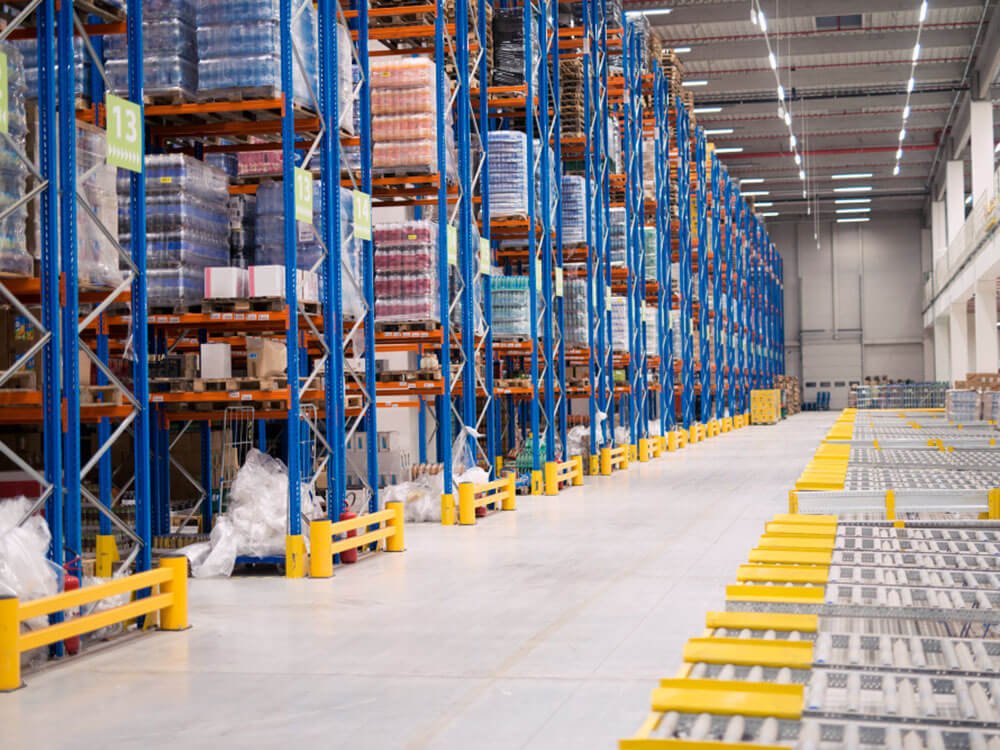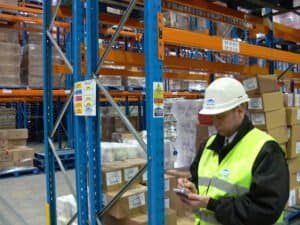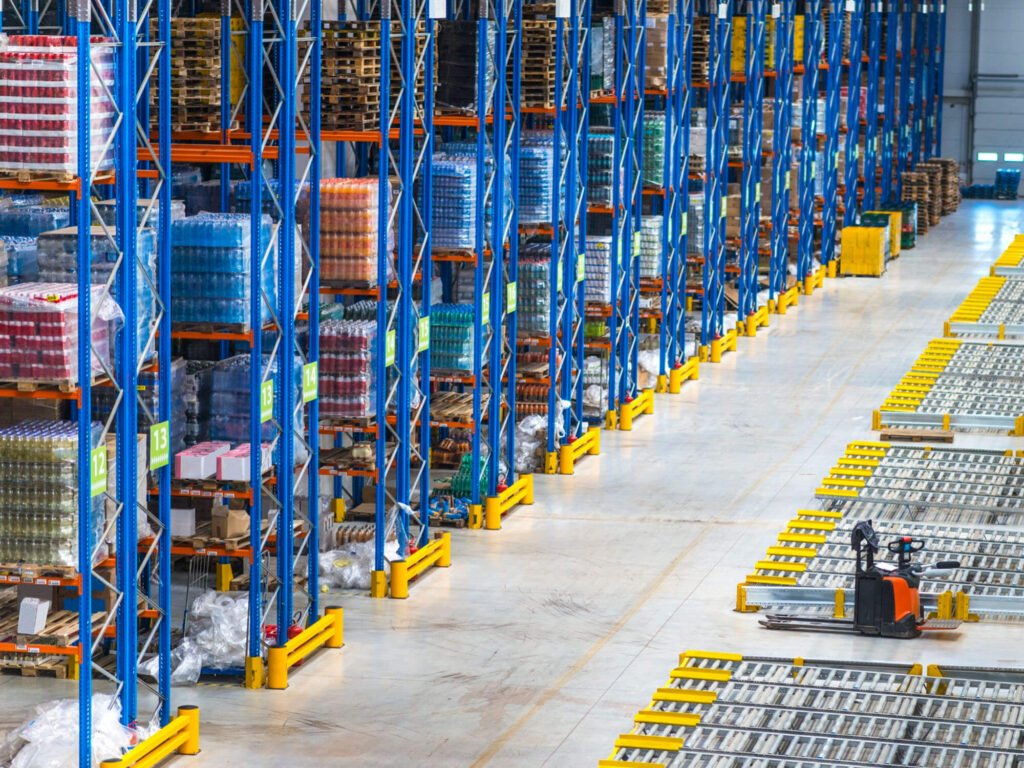Warehouses are a crucial part of various businesses as they cater to their storage requirements. Hence, having warehouses that are well-managed and organized is one of the crucial concerns for most businesses.
Understanding the significance of warehousing requires knowing about the advantages and disadvantages of warehousing. It helps you analyze how a warehouse adds value to your business. If you are looking forward to learning about the significance of warehouses, the guide below can help you.
Core Functions of Warehousing
Warehousing is equipped with various functions and some of these functions of warehousing are as follows:
Storage of Goods
Warehousing ensures that an organized and secure environment is maintained for storing the products till they are sold. It helps in ensuring that the products are protected against the damages caused by the environment or any sort of theft. When the appropriate racking systems are utilized for storing goods, the space is optimized perfectly. It even ensures that the products are easily accessible.
Inventory Management
Managing optimal stock level is one of the basic functions of a warehouse, it ensures inventory management effectively. The inventory records are maintained accurately and it helps to ensure that the overstocking is avoided. When you have a check and balance in the stock level you can also free your capital by not having it tied due to overstocking and also avoid stockout situations.
Stockouts lead to loss of sales and even your regular customers may feel dissatisfied if they don’t get the required products on time. Warehouses equipped with advanced inventory management systems also have barcode scanners and warehouse management software to streamline this process.
Order Fulfillment
The warehouse caters to the task of order fulfillment. The entire process of picking the right product to pack in a secure way and then dispatching it efficiently is conducted by the warehouse. When you opt for a warehouse you can meet the timely deliveries that will maintain the satisfaction of customers.
Value-Added Services
Warehouses these days are not just limited to the storage process and inventory management. They even are utilized for conducting other value-added services that make the process of inventory management a seamless one. The products are combined into single packages so that they can be shipped followed by this they are tagged with the required labels.
Key Benefits of Warehousing
There are various benefits of warehousing and these are discussed in detail below.
Storage Solutions
One of the major advantages of warehousing is that you get a properly organized storage for products. The products can be finished items, raw materials storage, or partially produced, you can store them safely ensuring they are protected against damage and contamination. The right type of storage system in warehouses ensures that the inventory is stored in an accessible way with safety protocols.
Efficient Distribution
A warehouse even helps in improving the supply chain. The products are stored on a single location and it helps businesses to reduce the cost of transportation and ensures quick order fulfillment. It helps in ensuring that the customer is satisfied and even helps to make long-term relations with them.
Seasonal Stock Management
The demand for certain products does fluctuate based on the trends of markets and some specific seasons. The warehouse helps businesses to store seasonal goods in advance so that when the demand is at its peak they can meet it easily. Businesses can deal with the issues of shortages and have a smooth supply chain without any burdens.
Risk Mitigation
Warehouses even help to keep the products safe, risks like damage due to weather situations contamination, or theft are avoided. Moreover, the warehouses are even equipped with advanced measures of security composition of CCTV cameras and fire control systems.
Moreover, there are temperature-controlled areas in warehouses for products that are perishable. Hence, the risks associated with the products and their storage can be mitigated with the help of warehouses.
Improved Cash Flow
Businesses can make the best use of warehouses and purchase items in bulk. It helps them make the most of economies of scale. The idea of bulk purchasing helps to reduce the expenses associated with sourcing the product and also ensures that the products are present to meet the demand when required. Businesses can keep some extra inventory to meet the delays in the supply chain and ensure consistency in operations.
Types of Warehousing
Some of the types of warehouses and their functions are discussed below.
Private Warehouses
Private warehouses are owned by businesses where they store their products. They have the ability to meet the business requirements specifically. Such warehouses are suitable for businesses that have high-volume storage and they even offer complete control over the management of inventory and other operations. The initial investment in such warehouses is very high but they offer long-term benefits if you have high storage requirements.
Public Warehouses
Public warehouses are such types of warehouses that are shared. These warehouses cater to multiple businesses and can be rented. Businesses that are small-sized may find them suitable as they help save the cost of investing in a private warehouse and even hold their inventory. These warehouses also offer packing, picking, and other inventory management services.
Bonded Warehouses
Bonded warehouses store imported goods by customs so that they are held till taxes and customs duties are paid. These warehouses are mostly used by businesses that are involved in international imports and till they pay the duties they can keep the products there. These warehouses are highly secure and even comply with the customs regulations.
Distribution Centers
Distribution centers store products for the short term. They are highly effective and focus on quick order fulfillment. They are mostly present near the transportation channels so that the products can be distributed with less transportation cost. They can handle large volumes in automated ways.
Importance of Warehousing in Specific Industries
Every industry needs warehouses for some or other reasons, some of these industries that require warehouses are discussed below with their significance.
E-Commerce
E-commerce businesses need to fulfill the customer order in time and with accuracy so that customer satisfaction is attained. Hence, such businesses have to rely on the warehouse so that the process of picking, packing, and shipping products is streamlined and the inventory is managed. These warehouses even depend on innovative methods of inventory management to ensure quick deliveries and enhanced operational efficiency.
Retail
Retailers require warehouses to manage inventory efficiently, especially during peak seasons. The warehouse ensures that the products are stocked and the chances of overstocking and understocking are eliminated. Therefore when it comes to seasonal products, storing them in advance allows businesses to have them on the shelves of stores immediately.
Manufacturing
The manufacturing sector has to store raw materials and products that are finished. Hence, having a warehouse which is well organized is crucial to ensure consistent materials supply timely. It even helps them keep the finished products ready to be distributed to the retailers.
Food and Beverage
The food and beverage sector requires warehouses that are meant to meet the specialized storage system. These warehouses are designed to store perishable products by having the required temperature and climate-controlled system in place. It is important to maintain the freshness and life of these food items and ensure compliance with food safety standards.
Technology in Warehousing
The warehouses these days are highly innovative and consist of advanced technology integrated to streamline operations of inventory management. Some of the ways technology is perceived in warehouses are as follows:
Warehouse Management Systems (WMS)
The Warehouse Management System is very crucial for modern warehousing as it offers to manage inventory released matters like space optimization, order processing, and tracking of inventory. Warehouse management systems allow the business to keep a check on the stock updates in real-time so that accuracy is maintained and restocking is done accordingly.
Automation
Automation also helps in enhancing the speed and efficiency in a warehouse by incorporating technologies including conveyor belts and robotic systems. These systems can help in picking the products, transporting the items, and accessing the stock with ease and minimal chances of human errors.
IoT and Sensors
The IoT and sensors help in the identification of the location of products and even help in keeping an eye on the temperature and other climatic controls that are crucial for the inventory. These are mostly used in pharmaceuticals and food industries where products require extra care in terms of ensuring there is no damage. These devices send alerts when the condition of the products varies from the required standards.
Challenges in Warehousing and Solutions
The challenges commonly faced in the warehouses and the solutions that may help with dealing with them are discussed in the section below.
Space Constraints
The major challenge in the warehouse is the space, when your inventory level increases you may lack space. This leads to a disruption in the flow of operations as the warehouse gets overcrowded and lacks organization. The accessibility of the products in this regard becomes a problem. The businesses can resolve this issue by opting for vertical storage systems so that the height of the warehouse is well utilized and there is no need to increase the footprint of the warehouses.
Inventory Mismanagement
Inventory mismanagement is also a concern which leads to understocking or overstocking and sometimes items even get misplaced. This leads to a lack of customer satisfaction and to deal with it opting for a warehouse management system is significant. You can track the inventory and minimize errors by opting for it and make the process of inventory management a smoother one.
Rising Costs
The cost of maintenance, labor, and other utilities tend to rise in warehouses which are important to be addressed. Warehouses can deal with these issues by opting for energy-efficient methods of lighting and the same climate control systems that reduce energy costs. Also, they can opt for long-term rental setups if they have rented the warehouse to achieve better rates.
Sustainability in Warehousing
Warehouses need to focus on sustainability and environmental friendliness and some of these practices that can be implemented are as follows:
Eco-Friendly Practices
Warehouses can opt for solar-powered systems using renewable energy sources by reducing the dependency on fossil fuels. It helps in lowering carbon emissions and they can play a vital role in environmental friendliness. Moreover, energy-efficient lighting systems like LEDs can even help in cutting down the cost as well as reduce energy consumption.
Opting for recyclable packaging material also ensures that the environment is protected and a positive role is played by businesses to ensure sustainability.
Waste Reduction
Waste reduction needs to be managed in the warehouses by opting for recycling programs. It is important to ensure the plastics and cardboard are disposed of properly and the impact on the environment is minimized. Also opting for warehouse management systems helps in monitoring the stock levels which even reduces waste by avoiding the issue of overstocking items.
Conclusion
The need for having a warehouse for a business cannot be undermined, though the advantages and disadvantages of warehouses are present; they can be managed by varied solutions. As you have read the guide above you must have learned about the significance of warehouse management. We at Lracking offer customized racking solutions for your warehouse so that you can have it maintained and organized.




